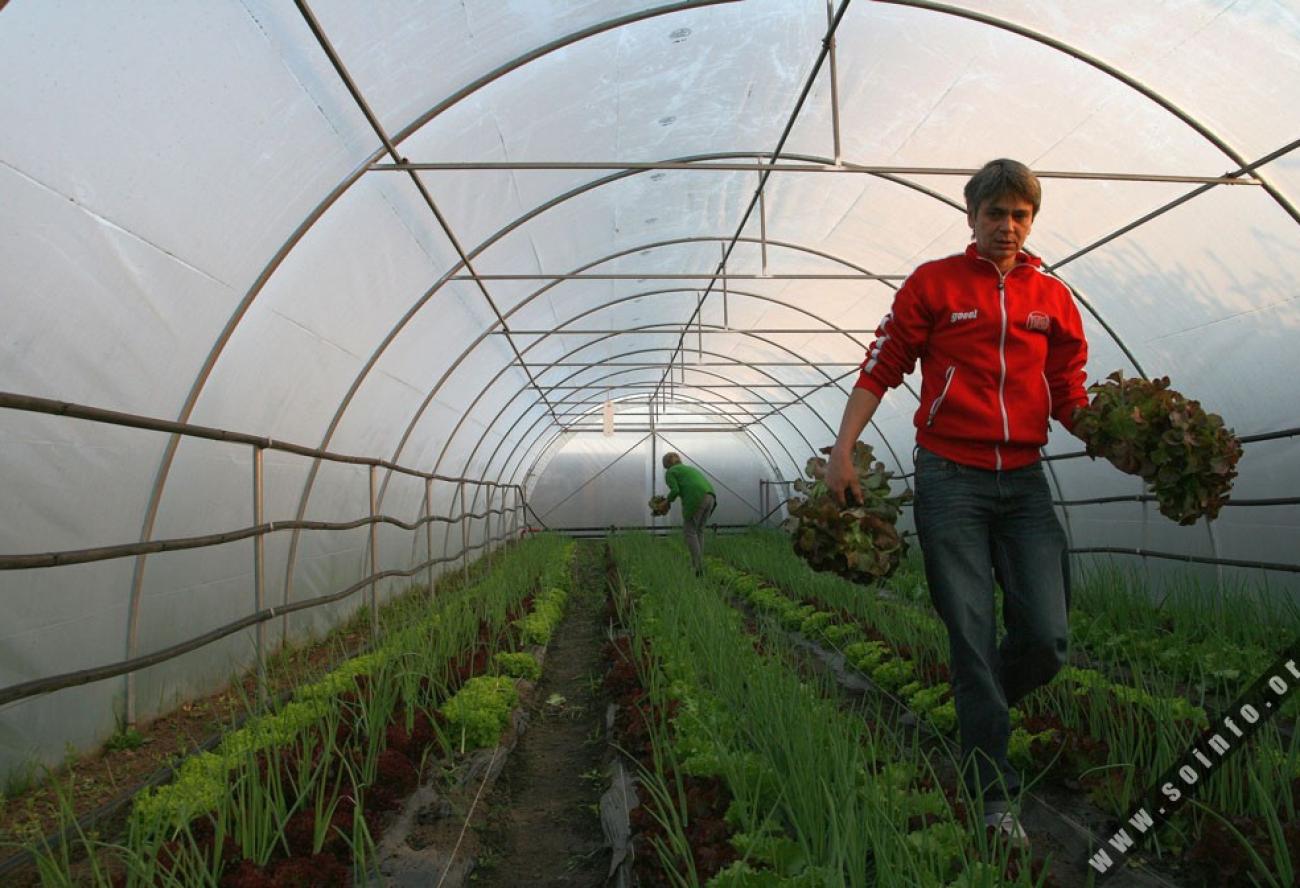Women power goes green in Serbia

Women survivors of domestic violence might be breathing new life into their organic garden but the green goods empower back
Sombor, Stanisic - With the first days of spring and the sunlight, “Good Garden” has turned into a green oasis packed with organically grown lettuce, spinach and onion. Marigold, as plant protector, is planted on all four sides of the greenhouse to prevent harmful insects reach the plants, while basil, as a plant-friend is everywhere to speed up the growing process.
Proudly watching it, Dalida Macura, coordinator of “Good Garden” admits that there is a reason behind the beauty of this green paradise. “I am singing them [plants] songs, but I cannot reveal which ones. That is our [plants’ and her] little secret I have to keep.”
This is one out of three greenhouses which comprise “Good Garden” in the northern Serbian town of Sombor. It is established within the SHE-Empowerment(ONAsnazivanje) project of Belgrade-based B92 Fund and supported by UN Trust Fund to End Violence Against Women. Kicked off in 2015, the main idea of the project is to contribute in an innovative way to women empowerment through economic independence, but also to promote a healthy lifestyle through production and consumption of organic vegetables. All the income from greenhouses goes to the Sombor safe house and activities aimed at their beneficiaries’ economic independence.
Therefore, “Good Garden” is not only a social enterprise for growing organic vegetables but also a training center for organic production for women survivors of domestic violence who wish to get involved in this kind of production.
According to Dalida, women survivors of domestic violence and beneficiaries of the Sombor safe house often need to rest first, being too exhausted to help in the garden in the beginning. “Usually only those who are staying longer in the safe house join in,” she noted while being the only one fully devoted to the greenhouses every day.
But, they can always take part in trainings led by leading experts in organic production in the country that are frequently held in the three greenhouses. This is where they can get basic knowledge on organic production and learn to develop their own business plans. The rationale behind this was that almost every house in this area has a garden and women are already growing something, but earning something out of it would be a major success and their path to economic independence.
As described in Wim Wender’s awarded movie The Salt of the Earth, growing a garden is has a healing effect, as well. “When you plant a little seed in the soil and it grows into a huge plant which gives you 10kg of tomatoes, that is an extraordinary feeling. Plants need a lot of love and attention, and you have to invest a lot of energy, and nature always heals and returns with good,” Dalida explained.
All these efforts resulted in two awards, which Good Garden won at the Smart Academy pitching forum organized within the Regional Forum of Social Innovations in April 2016. The jury reportedly took into account: sustainability, effectiveness and innovation (uniqueness compared to all existing initiatives).
Challenges, however, remain. Ljiljana Gusic, president of local Breathe Life women’s association, whose Dalida is a member, says that sustainability is still an issue. “One problem is that women are working on a voluntary basis which cannot last forever and second is the product placement. People in this area still have prejudice when they see something small, stunted with bugs and worms and they don’t believe it was not treated,” Ljiljana said referring to their organic products.
So far, they are sold on markets and in some local stores. According to Ljiljana, the main solution would be to have their organic products shipped to big cities like Belgrade and Novi Sad where awareness on organically produced vegetables already exists. In a bid to be self-sustainable, “Good Garden” would need to have at least four greenhouses and thus be able to engage more women and pay them for their work. s
In the meantime, seeds of tomato, cherry tomato and paprika are next in line for planting in the coming weeks, once lettuce, spinach and onions are gone.




